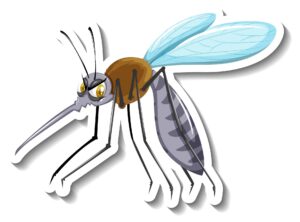
Dengue Fever is a viral illness transmitted primarily by the Aedes mosquito. It can cause severe flu-like symptoms and, in some cases, lead to life-threatening complications. Understanding the journey from diagnosis to recovery is crucial for those affected by this disease. In this comprehensive guide, we will delve into every aspect of Dengue Fever, from its symptoms and diagnosis to treatment options, prevention strategies, and the path to recovery. It is a mosquito-borne viral infection that can cause a range of symptoms, from mild fever and headache to severe bleeding and shock. It is a major public health concern in many tropical and subtropical countries, with an estimated 390 million dengue infections occurring worldwide each year.
Understanding Dengue
Dengue is a viral illness caused by the Dengue virus, primarily transmitted by the Aedes mosquito. Let’s explore the key aspects of this disease.
Symptoms
The most common symptoms of dengue fever include:
- Sudden, high fever (40°C/104°F or higher)
- Headache
- Muscle and joint pain
- Nausea and vomiting
- Rash (usually appears on the 4th or 5th day of illness)
Other symptoms may include:
- Fatigue
- Loss of appetite
- Sore throat
- Red eyes
- Swollen lymph nodes
Diagnosis
The diagnosis of dengue fever is based on a combination of clinical symptoms and laboratory findings. The doctor will ask about your medical history and travel history, and will perform a physical examination.
Laboratory tests that may be ordered include:
Complete blood count (CBC): This test can show a decrease in white blood cells and platelets, which are two types of blood cells that are important for fighting infection and preventing bleeding.
Dengue virus serology: This test can detect antibodies to the dengue virus in the blood.
Dengue NS1 antigen test: This test can detect a protein produced by the dengue virus in the blood.
Treatment
There is no specific treatment for dengue fever. Treatment is supportive and aimed at relieving symptoms and preventing complications. This may include:
- Getting plenty of rest
- Drinking plenty of fluids
- Taking over-the-counter pain relievers, such as acetaminophen (Tylenol) or ibuprofen (Advil)
- Avoiding medications that can thin the blood, such as aspirin and ibuprofen
If you have severe dengue fever, you may need to be hospitalized for intravenous fluids and blood transfusions.
Recovery
Most people recover from dengue fever within 7-10 days. However, some people may experience fatigue and weakness for several weeks or longer.
It is important to follow your doctor’s instructions carefully during your recovery. This may include:
- Getting plenty of rest
- Drinking plenty of fluids
- Eating a healthy diet
- Avoiding strenuous activity
If you have any signs or symptoms of complications, such as bleeding, severe abdominal pain, or difficulty breathing, see a doctor right away.
Prevention
The best way to prevent dengue fever is to avoid mosquito bites. This can be done by:
- Using insect repellent containing DEET or picaridin
- Wearing long sleeves and pants when outdoors
- Using mosquito nets when sleeping
- You can also help to reduce the mosquito population around your home by removing standing water, where mosquitoes breed.
Unique Tips for Navigating the Dengue Fever Journey
- Stay hydrated. Dengue fever can cause dehydration, so it is important to drink plenty of fluids, such as water, clear broths, and sports drinks.
- Monitor your symptoms. Be aware of your temperature and platelet count. If you have any signs or symptoms of severe dengue fever, such as bleeding, severe abdominal pain, or difficulty breathing, see a doctor right away.
- Get plenty of rest. Dengue fever can be a very tiring illness. It is important to get plenty of rest so that your body can heal.
- Eat a healthy diet. Eating a healthy diet will help your body to fight infection and recover from dengue fever. Choose foods that are high in nutrients and low in sugar and processed fats.
- Be patient. Recovery from dengue fever can take several weeks or longer. Be patient and don’t try to do too much too soon.
If you have any questions or concerns about dengue fever, talk to your doctor.

In a nut shell...
Navigating the Dengue Fever journey, from diagnosis to recovery, can be challenging, but with the right information and timely medical care, you can overcome this viral illness. Remember to be vigilant about the warning signs and follow preventive measures to reduce the risk of Dengue. Stay informed and stay safe.
FAQs
Q: What is the difference between dengue fever and malaria?
Q: How is dengue fever transmitted? Dengue fever is transmitted to humans through the bite of an infected Aedes mosquito. Aedes mosquitoes are found in many tropical and subtropical countries. Q: How long is the incubation period for dengue fever? The incubation period for dengue fever is typically 4-10 days. This means that it can take 4-10 days for symptoms to develop after being bitten by an infected mosquito. Q: Is dengue fever contagious? Dengue fever is not contagious from person to person. It can only be transmitted through the bite of an infected mosquito. Q: Is there a vaccine for dengue fever? Yes, there is a vaccine for dengue fever. However, it is not widely available and is only recommended for people who live in areas where dengue fever is common and who have been previously infected with the virus. |
